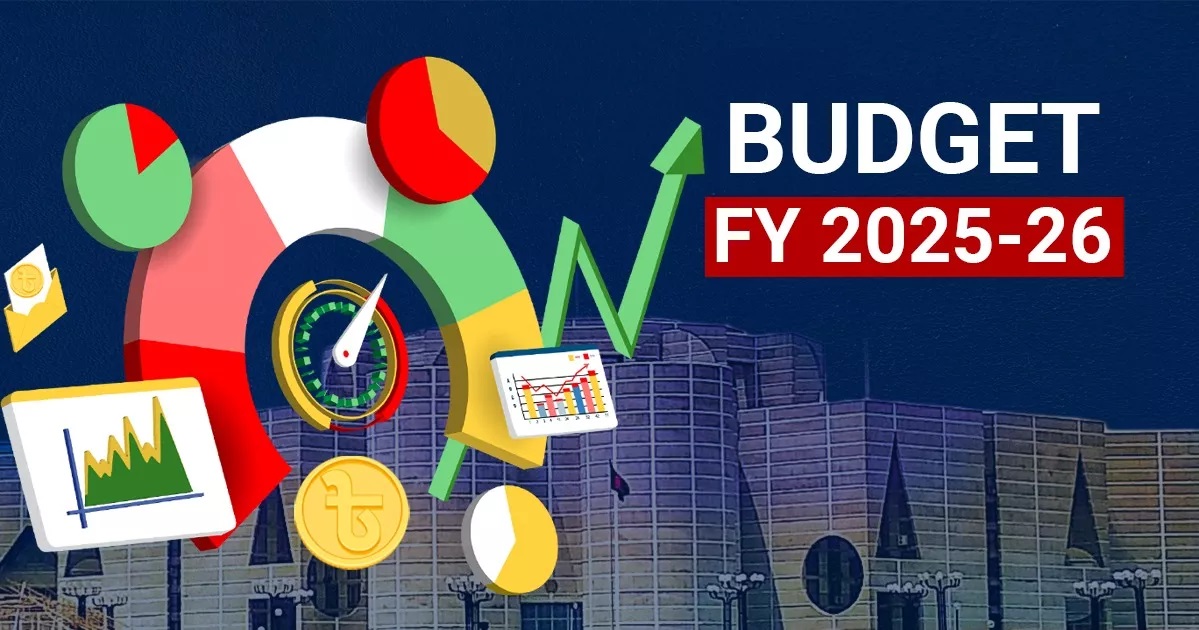Finance Adviser Salehuddin Ahmed on Monday unveiled the budget proposals of the interim government for the FY2025-26, focusing on taming the inflation and setting the economic growth target at a modest 5.5% in reflecting a policy of pragmatism and prioritising people over mega infrastructure.
Salehuddin took to the state-run BTV to announce the proposed budget of Tk7.90 lakh crore which he described as “exceptional” as the first time the size of a budget has been smaller than the one for the outgoing fiscal year’s (2024-25) outlay of Tk7,97000 crore. It’s the first in Bangladesh history.
The budget proposals were approved by the Advisory Council at a special meeting chaired by Chief Adviser Prof Muhammad Yunus before President Mohammed Shahabuddin signed the documents.
This is the 55th national budget of the country, but first for the interim government that took over after the ouster of former Prime Minister Sheikh Hasina’s government in last year’s July-August upsurge.
In describing the proposed budget “exceptional”, the finance adviser acknowledged, “For the first time in the country's history, we are proposing a smaller budget for the next fiscal year than the budget of FY2024-25.”
“Moving away from a growth-centric concept, we have tried to emphasise the concept of holistic development," said Salehuddin.
In his budget speech, the adviser made no efforts to hide the challenges face by the interim government.
Considering the realities, he projected GDP growth rate at a modest 5.5%, while containing the inflation at 6.5%. in FY26.
He expressed satisfaction in the gradual reduction in the rate of inflation since the Yunus-led government took office last year.
He said the point-to-point inflation came down to 9.1% in April this year from point-to-point inflation in December last year. It is expected to go gown to 8% by this month.
Salehuddin explained that the interim government had to face the hard challenges of containing high inflation, rebuilding a near collapsed economy, controlling the labour unrest and keep the industries running, fighting the unbridled corruption of the past regime and revenging the banking system from crisis.
“We have made encouraging progress in our efforts,” he said adding, “But there are still challenges ahead in restoring the economy to normalcy.”
The finance adviser, who served as the governor of the central bank, made efforts to cut the cloth according to the size. But he did not shy away from taking care of the needs in vital sectors like education, healthcare, good governance, civic services and employment generation.
In spite of the limitations, he gave priority to the needs of the people over infrastructure.
He pointed out that the size of the proposed budget is smaller largely because it has prioritise people over infrastructure. Unnecessary mega projects have been cut to save money to be spent on public welfare.
“Instead of merely highlighting physical infrastructure development, this time we are giving priority to people," he said.
The proposed budget, he said, focused on improving people’s living standard and guaranteeing fundamental rights along with creating an equitable and just society.
"Without these critical elements, a state becomes dysfunctional and the foundation of society weakens," the adviser said.
The proposed budget places special emphasis on education, healthcare, good governance, civic services and employment generation, he said.
In the proposed budget, Salehuddin took note of the global realities, the country’s graduation to the middle-income economy by next year, the climate change issues, energy and food security, in some cases making increased allocation.


